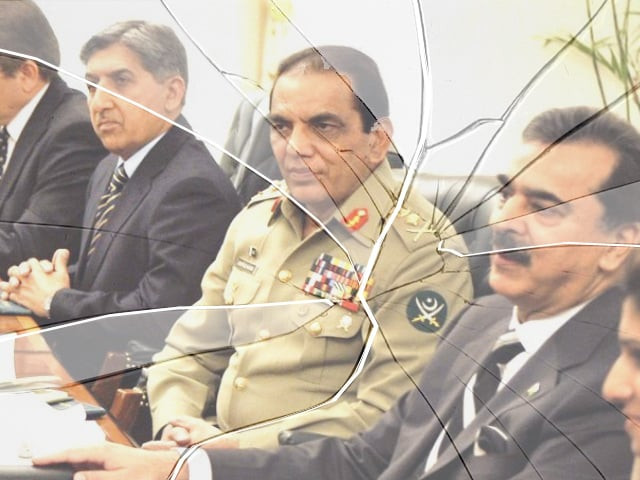Not another coup, please
After ISPR’s statement, many Pakistanis began to wonder whether a coup was imminent.

The ISPR statement also said that the “allegations” against the army chief and the head of the ISI made by the prime minister in his interview to the Chinese People’s Daily Online, and circulated by the state-owned news agency APP, could have “very serious ramifications with potentially grievous consequences for the Country”. A plain reading of this would see this as a clear threat to the PPP-led government, that it should fall in line or risk being booted out. No wonder, after the prime minister sacked the defence secretary, for “gross misconduct and illegal action” and after this statement appeared on ISPR’s website, many Pakistanis began to wonder whether a coup was imminent. The fact of the matter is that the prime minister is well within his rights if he wishes to sack the defence secretary, who is one of several federal secretaries serving the government of Pakistan. Though the details of why he has been fired from his job were not made clear, it is assumed that this would have to do with a statement he made some days ago before the Supreme Court in the memogate case where it was said that though the armed forces fell under the defence ministry’s jurisdiction, the ministry had no control over them.
It has to be said that the military’s practice of playing to the gallery by issuing seemingly self-righteous press statements, to assert its independence from the executive, is unfortunate. Such statements were issued to the press in the past as well: to clarify the telephone call that the army chief made to the president when the latter was convalescing recently in Dubai; during the heated debate on the Kerry-Lugar Bill and the clauses contained in it that would have diverted more US aid to Pakistan for civilian needs, and following revelation in a British newspaper that Mansoor Ijaz’s transcripts had suggested that the DG ISI was travelling to Arab states to garner support for a change in the government.
The executive, that is the prime minister, is the elected head of the government and serves at the pleasure of parliament, which in turn means that he serves at the pleasure of the people of Pakistan. This role is not for the military’s to appropriate — or should one use the term ‘usurp’? — to itself, by referring to acting in the national interest. This is to necessarily suggest that an elected civilian government is not in the national interest, certainly not the one which tries to assert itself against the military’s might. One doesn’t like to end editorials, or begin them, with quotes from dead people, but perhaps here it is opportune: You can fool some of the people all of the time, and all of the people some of the time, but you cannot fool all of the people all of the time.
Published in The Express Tribune, January 12th, 2012.



















COMMENTS
Comments are moderated and generally will be posted if they are on-topic and not abusive.
For more information, please see our Comments FAQ